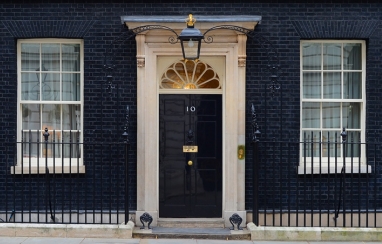- IetpShops , clima adidas performance adizero prime green screen , clima adidas performance adizero prime green screen 'Home' and 'Away'
- Мужские россовки adidas decade hi b - Украина #28353944 , adidas Originals Vit t-shirt i boyfriend-modell med stor logga - ball оригинал кожа — цена 2900 грн в каталоге Кроссовки ✓ Купить мужские вещи по доступной цене на Шафе
- IetpShops - Adidas Alphaedge 4D Reflective - Adidas Originals Spring - Summer 2007 Look Book
- all black jordan 13
- adidas mercury vintage cars price list Release Date , SBD , petite adidas inventory management system flowchart
- air jordan 1 retro high og university blue 555088 134
- kids air jordan
- air jordan spring 2021 retro collection release date info
- air force 1 shadow
- Air Jordan 1 Satin Black Toe CD0461 016 2019 Release Date 4
- Home
- News and analysis
- Info hubs
- Events
- Video
- Case Studies
- About us
- Magazine
- Advertising
Produced for the industry by the Association for Consultancy and Engineering
Comment
All change at Number 10 as May makes her mark
Changes to personnel and positions in the new prime minister’s cabinet will undoubtedly have an effect on the infrastructure sector, says Andy Walker.

The pace of political change shows no sign of abating following the departure of David Cameron from 10 Downing Street. His successor and Britain’s second female prime minister Theresa May has wasted no time in making sweeping changes to her cabinet line-up and signalling a change in approach from the previous regime.
Brexit has obviously cast a long shadow over recent political events. The idea that politics doesn’t matter or that voting does not change anything has never been more comprehensively, and dramatically, debunked by events in the UK since 23 June. Politics does indeed matter and affects all aspects of life, including business.
Prime minister May’s appointments will affect the infrastructure sector going forward, though exactly how is yet to be fully understood. The immediate effect will be more uncertainty in the short term as the industry tries to digest the ramifications of the departure of the ‘hard hat, hi-vis' chancellor Osborne who had so publically nailed his colours to infrastructure investment with active promotion of initiatives such as the Northern Powerhouse.
"The immediate effect will be more uncertainty in the short term as the industry tries to digest the ramifications of the departure of the 'hard hat, hi-vis' chancellor Osborne who had so publicly nailed his colours to infrastructure investment with active promotion of initiatives such as the Northern Powerhouse."
Delegates I spoke to in Manchester yesterday at the Construction Summit North event were concerned that the new chancellor Phillip Hammond might not share his predecessor’s enthusiasm for the Powerhouse agenda. Theresa May’s words about focusing on “all of the UK and not just one or two regions” will also raise doubts in some people’s minds about the future of the Northern Powerhouse in its current form. Time will tell on that.
Other cabinet changes sure to have an impact on the sector include the scrapping of the Department of Energy and Climate Change, the creation of a new Brexit ministry, Chris Grayling’s arrival as the new transport secretary, Andrea Leadsom taking over at environment, a new face at DFID and the new responsibilities being taken on by the new department for business, energy and industrial strategy, to name but a few.
Commenting on the new cabinet appointments, Julian Francis, director of policy and external affairs at the Association for Consultancy and Engineering, said: “Theresa May’s new cabinet highlights that she is determined to meet the commitments she made in her leadership bid and shows a steely ruthlessness in carrying out her agenda.
“Brexiteers cannot complain too much as there are now three departments that will be handling the UK’s exit from the EU and they are all lead by prominent Vote Leave supporters. Overall, the balance of the new cabinet shows that the PM is visibly uniting the party by favouring neither side but also demonstrates to Westminster and the country that this is no pale imitation of the Cameron era but a brand new government.”
Francis said that he thought that the reorganisation of some cabinet responsibilities would definitely have an impact on the infrastructure sector. “The big change for our industry will be an apparent transfer from the Treasury to the new department for Business, Energy and Industrial Strategy of the infrastructure agenda,” said Francis.
"Many in the industry will no doubt welcome a more joined up approach and a clearer link between infrastructure investment and the undoubted benefits it brings to the economy and socially."
“Early indications are that the department will produce an infrastructure and industrial strategy that will have at its heart the rebalancing of the economy and a more equitable distribution of the proceeds of growth. Future infrastructure spending and regional development, such as the Northern Powerhouse, will be connected to economic growth and social improvement,” Francis said.
Commenting on the cabinet changes, Dr Nelson Ogunshakin OBE, chief executive of the Association for Consultancy and Engineering said: “Whilst we welcome the swift step taken to reassure the market of her leadership, we are disappointed to see that Mrs May has not taken the opportunity of the formation of her first cabinet to create a new Department for Infrastructure, something ACE and our members have long called for. Such a missed opportunity would have provided the integration and oversight that is required in infrastructure, as we outlined in our paper, jointly authored with Stephen Hammond MP last year.
“As we said at the time, a new DfI would provide clear leadership at the very top of government, reducing confusion and increase certainty; greater appreciation of the interdependency of infrastructure; better programme management through a ‘whole life cost’ approach; and potentially cost savings as functions are merged, delivery is streamlined, and programmes can be better aligned.
“What is important now, however, is we all get down to work to reduce the uncertainty and turmoil we have experienced in the markets and in particular in the engineering sector in recent weeks. The government must reassure the industry that infrastructure will be at the heart of a post-Brexit Britain. They could best do this by recommitting to projects like HS2, the roads investment programme, housebuilding, Hinkley C and give us a decision as soon as possible on a new runway in the south east.”
"We are disappointed to see that Mrs May has not taken the opportunity to create a new Department for Infrastructure, something which ACE and our members have long called for."
- Nelson Ogunshakin, ACE chief executive
Many in the industry will no doubt welcome a more joined up approach and a clearer link between infrastructure investment and the undoubted benefits it brings to the economy and socially. Such a move could mean that the infrastructure sector is even better placed to demonstrate the significant boost to sustainable economic growth that investment can make in boosting economic activity outside of London and helping to address economic inequality in the UK.
Strategically placing infrastructure investment as a key enabler in delivering the new government’s economic and social agenda can only be a good thing for the industry. It is even more vital therefore that over the coming weeks and months industry leaders should continue to be vocal in promoting infrastructure investment as the key way to stabilise and grow the economy and transform people’s lives in the process.
Andy Walker is the editor of Infrastructure Intelligence.





